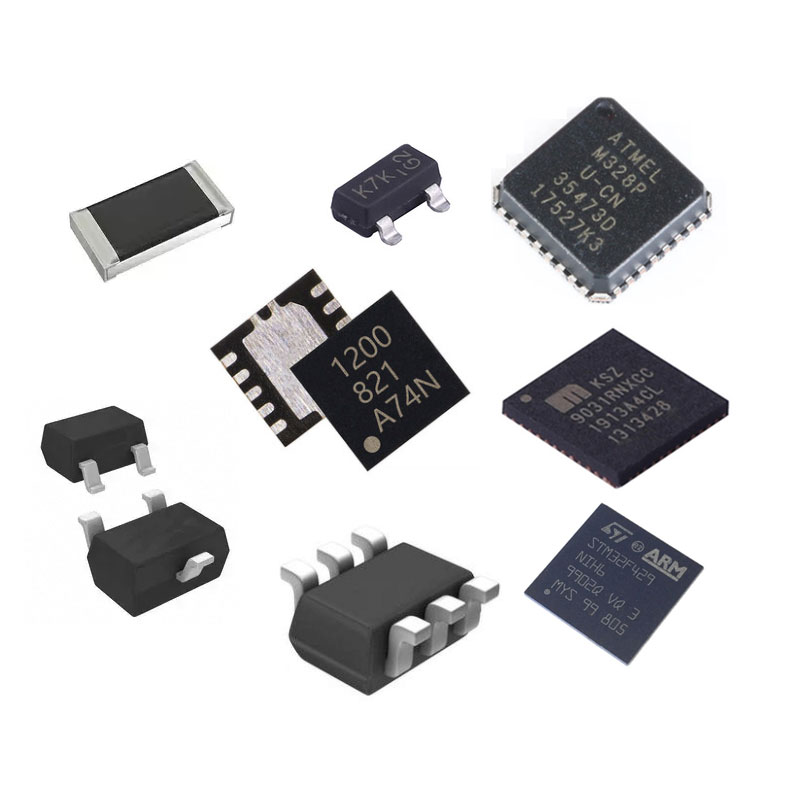
A filter is a device or system used for processing signals, operating based on the frequency response characteristics of the signal to alter the amplitude or phase of different frequency components, thereby achieving the filtering effect of the signal. Specifically, a filter allows specific frequency components of the signal to pass through while greatly attenuating or suppressing other frequency components, acting like a "sieve" for frequencies.
The foundation of filters lies in resonant circuits, as long as resonant circuit combinations can be formed, the function of a filter can be achieved. Filters typically consist of components such as capacitors, inductors, and resistors, which attenuate or enhance signals to different extents based on the signal's frequency. By setting the values or combinations of these components, different filtering effects can be achieved.
There are many types of filters, categorized by their frequency characteristics into four basic types: low-pass filters, high-pass filters, band-pass filters, and band-stop filters. Each type of filter has its unique principles of operation and application scenarios. For example, low-pass filters allow low-frequency signals to pass through while attenuating high-frequency signals; conversely, high-pass filters do the opposite, allowing high-frequency signals to pass through while attenuating low-frequency signals. In image processing, high-pass filters are commonly used to enhance image edges and details, improving image clarity; in biomedical signal processing, high-pass filters are used to remove low-frequency components from physiological signals, highlighting abnormal waveforms.
Additionally, filters have wide-ranging applications in various fields. Here are several major application areas:
1. Industrial, commercial, and institutional power distribution networks: Filters are used in power distribution networks in industries such as power systems, electroplating enterprises, water treatment equipment, petrochemical enterprises, large shopping malls and office buildings, precision electronics enterprises, airports/ports' power supply systems, and medical institutions. These filters help improve the stability of power equipment, extend their lifespan, and ensure that power distribution systems comply with harmonic environment design specifications.
2. Telecommunications industry: In the telecommunications field, filters are widely used to meet the operational requirements of large-scale data center server rooms. By using filters, the stability of communication systems and power distribution systems can be improved, and the lifespan of communication equipment and power equipment can be prolonged. Additionally, filters help ensure that power distribution systems comply with harmonic environment design specifications.
3. Semiconductor industry: Filters also play a crucial role in the semiconductor industry. Due to the widespread use of single-phase rectifier equipment, the semiconductor industry often faces severe issues with 3rd harmonic distortion. Filters can help address problems such as excessive neutral line pressure and arcing, eliminating production safety hazards.
4. Radar systems: Filters play a critical role in the design and operation of radar systems. They can remove noise, separate target signals, and adjust signal bandwidth, thereby improving the signal-to-noise ratio, sensitivity, and resolution of radar systems.
5. Biomedicine: In the field of biomedicine, filters are used to improve the quality of biomedical signals, such as electrocardiographic signals, electromyographic signals, and electroencephalographic signals. Filters can also be used to extract specific frequency components or features from biomedical signals, aiding in disease diagnosis and physiological research.
6. Artificial intelligence: In the field of artificial intelligence, filters are used for feature extraction in neural networks. By filtering input data through convolutional layers, the accuracy and generalization ability of models can be improved.
In summary, filters are powerful signal processing tools that, through processing different frequency components of a signal, can achieve purposes such as signal extraction, enhancement, and noise reduction, providing effective solutions for various application scenarios.
Eurotech is a worldwide supplier and exporter of electronic components, specializing in ICs, LCDs, Memory, Chips, computer parts, networking equipments and other passive components.
Tel: (86) 755 83952292
E-mail: global08@eurotech-ic.com
https://www.eurotech-ic.com/